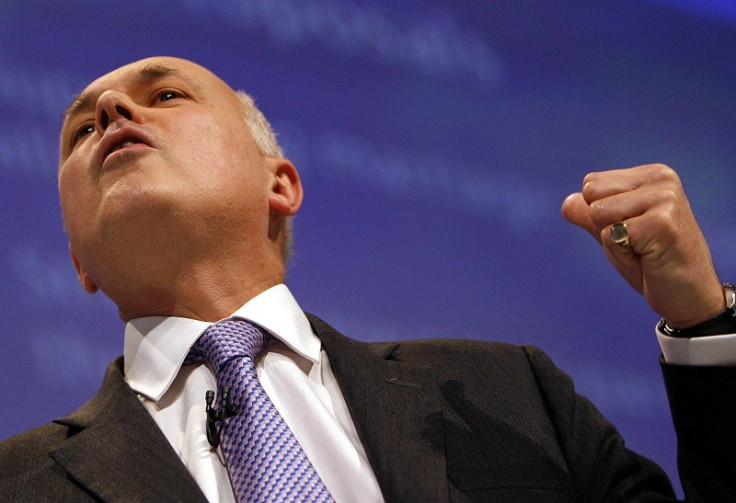Iain Duncan Smith 'Hid Problems with Welfare Reforms'

Fears that the government's flagship welfare reforms are in far deeper trouble than suspected have been heightened after yet another ill-tempered session of a key Commons committee with the minister responsible, Iain Duncan Smith.
The work and pensions secretary was accused of deliberately misleading the committee and attempting to "sweep things under the carpet" after a series of delays and cost write-offs on his complex Universal Credit scheme.
And he revealed that the man charged with rescuing the £2.3bn project after previous crises, former Olympics boss Howard Shiplee, has been out of the office with bronchitis since before Christmas and working only via conference calls. He is the third person to hold the post.
Committee chair, Labour's Anne Begg, said Duncan Smith had previously told the committee everything was going well with UC without revealing that a full internal review was under way.
"You can imagine why some people are a bit suspicious that this is a department attempt to sweep things under the carpet," she said.
"Our problem is we are not convinced by your argument that you have got it sorted out," she said later.
I don't have to tell the committee everything that is happening in the department until we have reached a conclusion about what is actually happening. I will take those decisions myself. I don't think this committee can run the department.
His approach clearly angered the Labour MPs on the committee, while Conservative members did not line up to support him, a move interpreted by some as a sign they were also losing confidence in his handling of the reforms.
Labour's Glenda Jackson was involved in a particularly angry exchange during which she claimed he had left her "in a fog" and he accused her of talking "in a foreign language".
At one point Duncan Smith snapped: "I don't have to tell the committee everything that is happening in the department until we have reached a conclusion about what is actually happening. I will take those decisions myself. I don't think this committee can run the department."
The argumentative session could be summed up by the MPs' suggestion that Duncan Smith was treating them with arrogance and haughtiness while he thought they were not bright enough to understand the detail of his great scheme.
There have been persistent problems with Universal Credit, which should replace six separate benefits, a plan always seen as hugely ambitious, even unrealistic. Previous attempts at welfare reform from both parties have backed away from radical reforms because of the complexity and controversy surrounding them.
And, while many agree welfare is an issue that needs tackling and have praised Duncan Smith for attempting it, there are many even on the Tory benches who have questioned his ability to handle it.
There was one report contained in a recent book, that chancellor George Osborne claimed Duncan Smith was not bright enough for the job. Osborne has denied the claim but the impression has persisted.
Meanwhile there have been critical reports over the £40m write-off of IT systems, claims of a falling out between Duncan Smith and both the chancellor and Cabinet secretary Angus Maude, and regular delays to the implementation timetable.
There are now suggestions that, while much of the system is not due to come online until after the next election, Duncan Smith may be preparing to stand down in 2015 and, in effect, walk away from it.
What has dismayed some of his supporters, however, is that at a time when he needs as many friends as possible to help keep his project "on time and in budget" as he continues to claim it will be, he has a knack of making enemies instead.
© Copyright IBTimes 2025. All rights reserved.






















